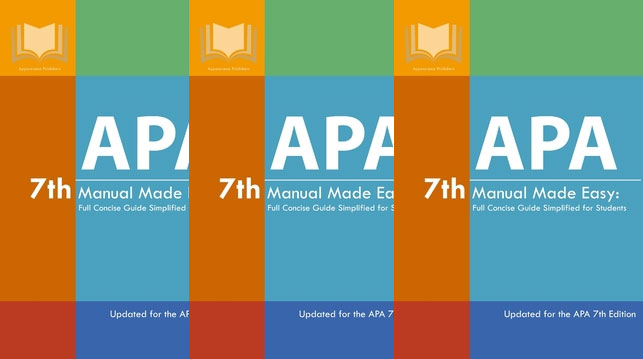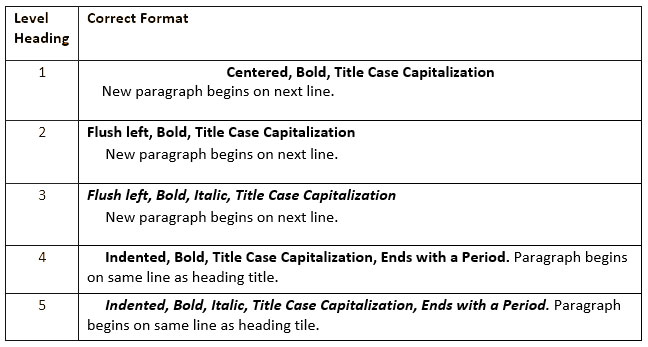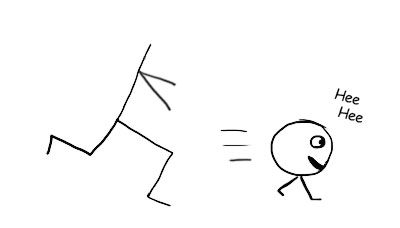
Yes, the 7th edition of The Publication Manual of the American Psychological Association has been out since October 2019, which means you really have to stop using the 6th edition. Fortunately, it’s not that spendy.
Unlike the last update of the MLA manual, which was sort of a mess, the new APA manual is refreshingly easy to navigate with tabs, TOCs for all the chapters, and a much more thorough index. Even better, the style updates reflect modern usage, especially regarding online publications, and make a lot of sense. (Goodbye, two spaces after periods!)
Here are the top ten changes, selected because these are the issues professional editors are probably going to encounter most often.
1. One Space After Periods (6.1, p. 154)
When we were all using typewriters, putting two spaces after terminal punctuation (periods, exclamation points, question marks) and colons made sense. Now that we use computer software, it doesn’t.
Get a free sample proofread and edit for your APA document.
Two professional proofreaders will proofread and edit your APA document.
Note: APA retains its use of no space after periods inside abbreviations (e.g., U.S., a.m.).
2. Gender Sensitivity and Use of “They” as a Singular Pronoun (5.5, p. 138)
APA has aggressively jumped on the gender issue with an entire chapter on “Bias-Free Language.” For example:
To refer to all human beings, use terms like “individuals,” “people,” or “persons” rather than “man” or “mankind” to be accurate and inclusive. Avoid gendered endings such as “man” in occupational titles (e.g., use “police officer” instead of “policeman”), as these can be ambiguous and may imply incorrectly that all persons in the group self-identify as one gender. Instead, use a nongendered term if possible (e.g., “homemaker” instead of “housewife”). If you use sources that include the generic “man,” generic “he,” or dated occupational titles, clarify the historical context in which these terms were used. (pp. 141–142)
More firmly than Chicago, APA now says not to use “he or she” or the like and to use “they” for all singular, nongendered antecedents. The following are now correct:
The nurse should then sign the form with their full name.
The subject explained they had no knowledge of the results.
3. No Publisher Location in References (9.29, p. 295)
Considering how many publishing houses either have many or don’t have any physical locations, this change is a welcome relief. Now we need only name the publisher because an “online search makes a work easily discoverable without it” (p. 295).
6th ed.: Noesner, G. (2010). Stalling for time. New York, NY: Random House.
7th ed.: Noesner, G. (2010). Stalling for time. Random House.
4. Use the Oxford/Serial Comma (6.3, p. 155)
This was implied before, but now APA is adamant: use the comma before the “and” or “but” or whatever conjunction is used in a list of three or more items.
I like dancing, reading, and cooking.
5. Three or More Authors? Use “et al.” Each Time (8.17, p. 266)
The old way was to list three to five authors the first time, then switch to the first name followed by “et al.” Now, if there are more than two authors, just use the first name and “et al.” every time.
6. New Heading Formats (2.27, p. 48)
Oh dear. This one is going to take some getting used to. Note all five levels take title case capitalization now, all are bolded, and the alignment for level 3 has changed.

7. Italicize Webpage Titles (110–114, pp. 351–352)
Treat webpage titles like book titles, not article titles:
Houston, J. (2020). Top 10 changes in APA’s 7th edition. ProofreadingPal. https://proofreadingpal.com/proofreading-pulse/editing-tools/top-10-changes-in-apa-7th-edition
8. Ditch “Retrieved from” (110–114, pp. 351–352)
Look back up at my example for #7. Notice something missing? Saying “Retrieved from” before a URL serves no purpose, unless you need to mention the date. (This is a good place to mention you should always include the website name now, unless it’s the same as the author.)
Parmelee, S. (2019). Conditional verbs in research writing. ProofreadingPal. https://proofreadingpal.com/proofreading-pulse/grammar/conditional-verbs-in-research-writing
Feerick, J. (2019). Poetry tools to enhance your prose: Meter. ProofreadingPal. Retrieved February 22, 2020, from https://proofreadingpal.com/proofreading-pulse/writing-guides/poetry-tools-to-enhance-your-prose-meter
9. Treat DOIs Like URLs (9.35, pp. 299–300)
6th ed.: doi:10.1234567890
7th ed.: http://doi.org/10.1234567890
10. Don’t Use “Running head:” in the Running Head (2.3, pp. 30–31)
 It always was kind of odd to label the running head “Running head” on the first page. Don’t do it anymore. Also, students’ papers do not need a running head unless their instructors call for it.
It always was kind of odd to label the running head “Running head” on the first page. Don’t do it anymore. Also, students’ papers do not need a running head unless their instructors call for it.
So those are the greatest hits of the APA 7th edition, but there are many other changes, particularly for references and digital documents. If you do any sort of professional APA editing, you really need to buy the manual.
Julia H.
Get a free sample proofread and edit for your APA document.
Two professional proofreaders will proofread and edit your APA document.
Get a free sample proofread and edit for your document.
Two professional proofreaders will proofread and edit your document.
We will get your free sample back in three to six hours!